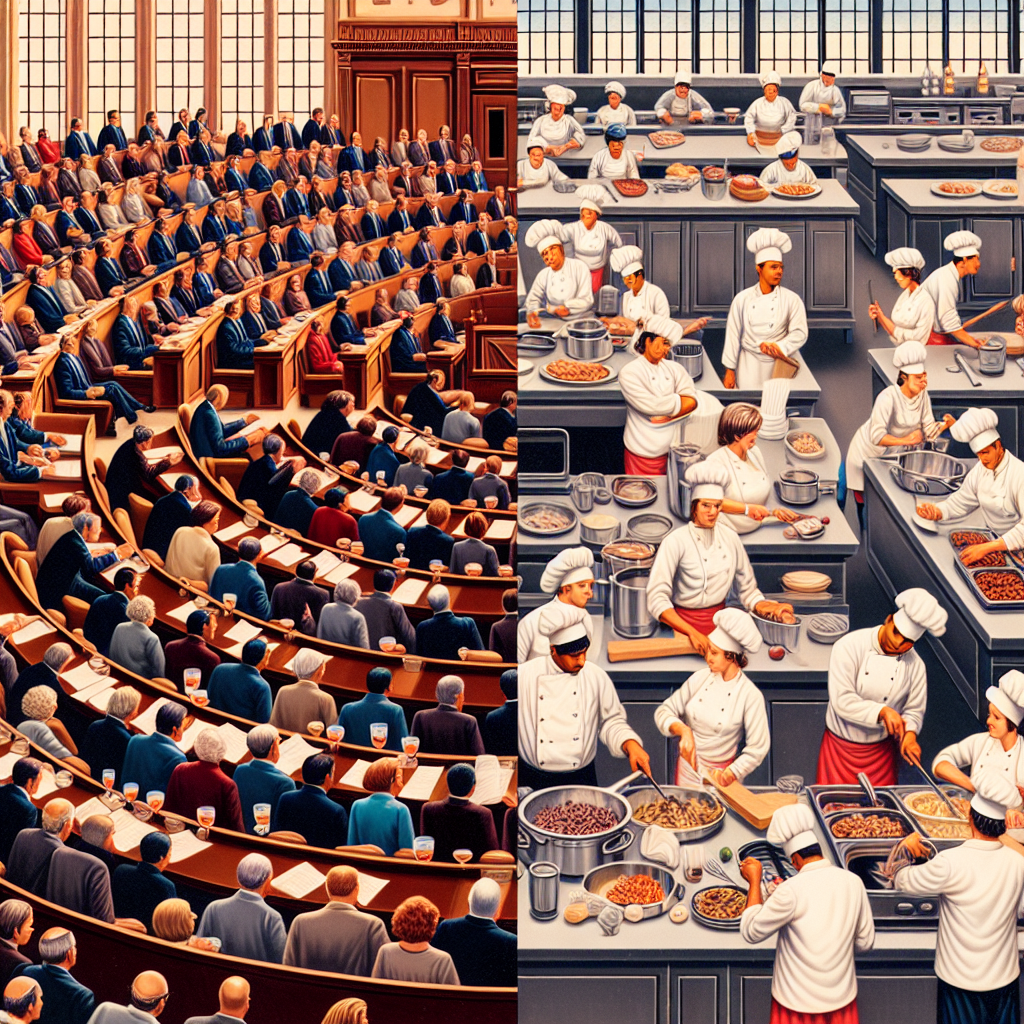In a surprising turn of events, a landmark education reform bill has passed legislature. As political correspondents, we often find ourselves relying on analogies to explain complex issues. In this case, the passed educational reform can be compared to a recipe being refined over generations.
Culinary Tradition
Just as recipes evolve through time yet retain their core identity, so too does legislation like this education reform bill. Centuries-old dishes have seen countless adjustments but always revolve around central principles; similar is the way our lawmakers have approached this latest policy.
Cultural Roots
The roots of both educational systems and cuisine lie deep within society’s fabric. They both manifest common cultural values – much like how family recipes serve as vehicles for tradition, so are our schools reflections of our societal norms and expectations.
Modern Evolution
As societies change, it becomes necessary for elements rooted in tradition – such as culinary art and educational policies – to adapt accordingly. The modern evolution observed in both these areas signifies resilience amidst changing times while ensuring continuity with past generations.
Key Ingredients
Laws are formulated from multiple ‘ingredients’ including societal needs, economic situations or prevalent philosophies just as various spices contribute different flavors in cooking; every component matters when aiming to create comprehensive legislations or delicious meals alike.
Preparation Methods
The preparation method in cuisine dictates final taste while decision-making processes determine effectiveness in law enactment. As chefs experiment with techniques for perfecting dishes, similarly policy makers iterate drafts for laws making them as beneficial as possible.
Cultural Significance
Both food and education hold cultural significance. They are platforms where societal values, history and futures are not only reflected but also nourished ensuring continuity.
Contemporary Trends
The rise in healthy eating trends has reshaped culinary world; similar trend towards equity centered policies is observed with recently passed bill emphasizing inclusiveness education.Expert Perspectives
Analyzing expert perspectives on both fronts – chefs’ views on evolving culinary patterns or educationalists thoughts on modern reforms, elucidates deeper insights into these dynamic processes.
Personal Experiences
Relying on personal experiences when cooking or teaching allows greater understanding of subject matter providing enriched flavor to dish prepared or knowledge imparted.
Cultural Preservation
The preservation of cultural heritage through food parallels the commitment to uphold high standards in educational policy. With this new legislation’s passage, we hope that we have retained vital elements of our traditions while paving a path for innovation and progress.
